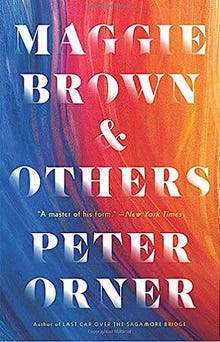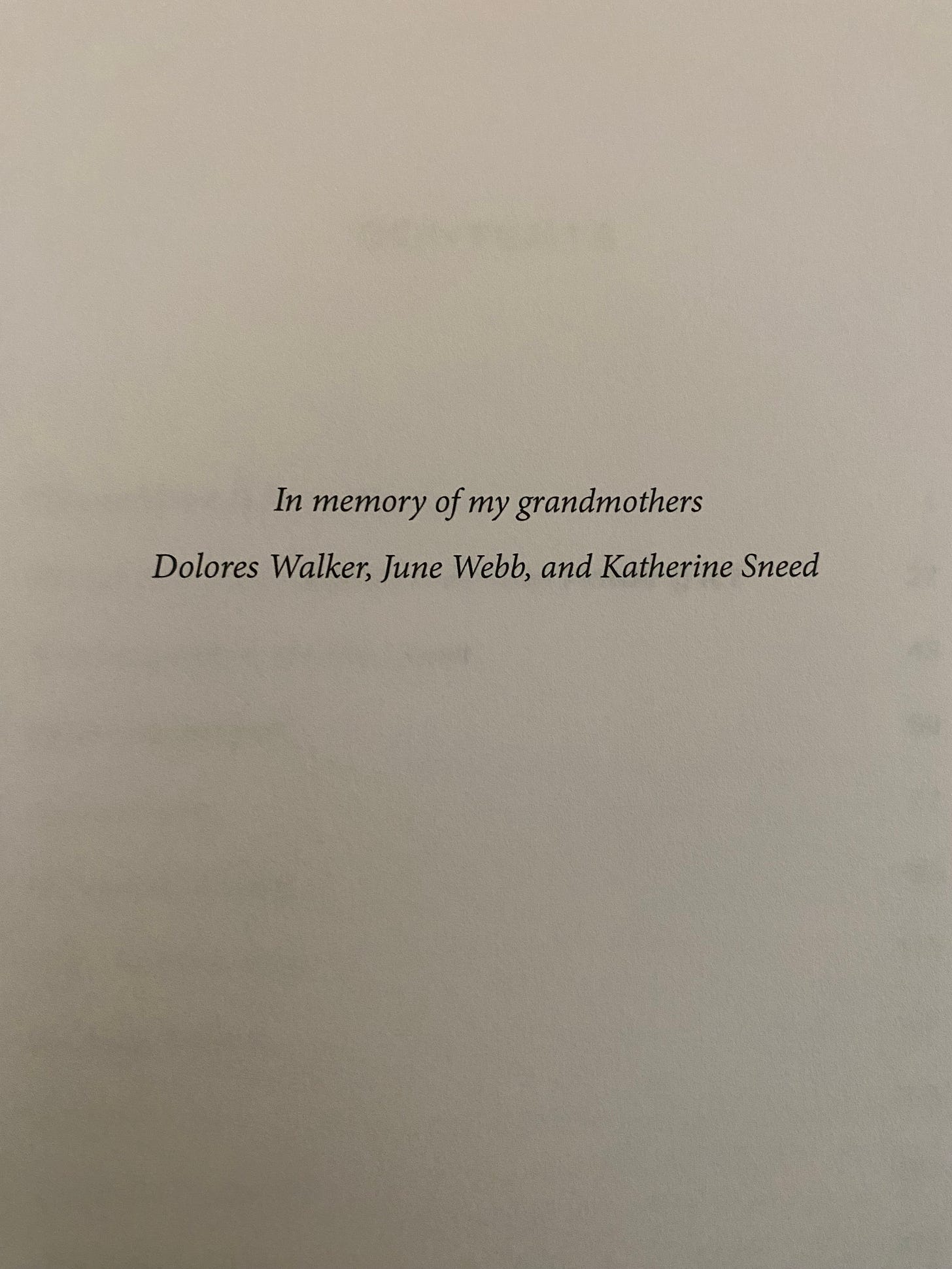I expected a playful nose-thumbing at his readers: “To the memory of Attila the Hun, who taught me everything I know,” or “To Susie, the girl next door - who once told me I look good in blue.” When I checked, the truth was much tamer: J.D. Salinger had dedicated The Catcher in the Rye to his mother. I wondered what she thought of this novel, if she’d recommended it to her friends, and if subsequently they kicked her out of bridge club.
Book dedications, for many authors, can be sources of anxiety—who to feature here and proclaim their importance? Some writers dispense with them entirely. Like Salinger’s, dedications might be dutiful, sincere offerings to supportive family members. Some dedications are impulsive romantic gestures, as in the case of a young female poet a friend once told me about. In the hothouse days of a new relationship, she dedicated her forthcoming collection to a man she’d been seeing for three weeks. The book endured; the love affair did not. My advice would have been: save him for acknowledgments page!
Acknowledgments are in most cases much more expansive than dedications. It is here that authors demarcate the complex emotional and intellectual territory they traversed while writing and researching their books. This page (or pages—some go on for as many as six or seven) might include the names of experts who provided technical details about a scholarly or scientific topic, mentors and writing group members, former classmates, siblings, editors, agents, colleagues, first, second, and third readers – there is room, in most books, to thank everyone the author would like to in the acknowledgments. But less is maybe…more?
Peter Orner, whose most recent story collections are Maggie Brown and Others and Last Car Over the Sagamore Bridge (dedication: For my mother, Rhoda Kaplan Pierce, and Pat Strachan), shared a few of his thoughts with me over email: “I'm always of the school, the less the better…these long acknowledgment pages that you see sometimes – and I've been guilty of a little of this myself – [seem] sometimes [to be] more about the thanker than those being thanked.”
Despite how brief or bloated an acknowledgments page might be (and like Orner, I’ve probably been guilty of overstuffing a couple of my own acknowledgments pages), the coveted real estate remains at the front of the book, and one of my favorite dedications is Salman Rushdie’s in Midnight’s Children: “For Zafar Rushdie, who, contrary to all expectations, was born in the afternoon.” Rushdie’s clever joke serves as a good introduction to the book’s lightly comic tone.
Rachel Kushner included an equally memorable, albeit very different, dedication in her second novel The Flame Throwers: “This book is for Cynthia Mitchell. And for Anna, wherever she is (and probably isn’t).” Of course I wondered immediately who this Anna is, and if she was the basis for Kushner’s romantic heroine. The author and her editor must have known this cryptic dedication alone would likely seduce a few casual bookstore browsers into buying the novel.
Speaking of another Anna, likewise a romantic figure but a more well-known one, I checked Anna Karenina for a dedication page but didn’t find one. Instead, there was an ominous epigraph on the title page: “Vengeance is mine, and I will repay.” Instead of thanking his wife or any of their many children, Tolstoy enacted a kind of spooky authorial ventriloquism that leads us directly into the novel.
I searched a number of other classics for dedications and didn’t find them in my scruffy paperback editions (some, with cracked spines and dog-eared pages, inherited from family members who read them long ago) of Madame Bovary, Lady Chatterley’s Lover, Crime and Punishment, The Sorrows of Young Werther, Wuthering Heights, or Uncle Tom’s Cabin. Maybe dedications were recent additions to a book’s front matter? It didn’t seem likely, however, and a moment later, I spotted one in The Innocents Abroad, Twain’s jesting voice as distinct here as on any other page he signed his name to: “To my most patient reader and most charitable critic, My Aged Mother, this volume is affectionately inscribed.”
With a little research, I learned that book dedications date back a number of centuries and were sometimes used by an author or a publisher to thank a patron, and in some cases, to try to flatter the patron into offering a donation for the book’s printing costs or seed money to put toward the creation of the author’s next volume. (Who ever said that a compliment costs nothing?)
Michael Lewis, author most recently of The Premonition: A Pandemic Story, uses his dedications for a less pragmatic, more heartfelt, purpose: “I've never used them to thank someone who helped with the book, but always to give a shout-out to someone I care about.”
Stuart Dybek, whose most recent story collections are Ecstatic Cahoots and Paper Lantern, shared this about his own dedications: “I wish I had a mysterious one, something along the lines of Jimmy Durante the Shnoz, who would sign off every show with ‘And goodnight, Mrs. Calabash, wherever you are.’ [It] would get you making up stories about who she was. I'm afraid my own dedications are neither amusing nor mysterious. Family members mostly, by way of thanks, making an acknowledgments page unnecessary.”
Dybek also said, “[I]f one considers the book beginning with its title, then why not make the dedication fiction, too? Which I guess is a kind of metafiction move, or maybe more akin to continuing a painting past its frame, on the wall where it hangs. I actually did consider that idea for the book of love stories, Paper Lantern…but finally that was just too cheesy.”
As for Peter Orner, “I prefer [dedications] to be short and to the point. I don't like a crowd here…yet, to contradict myself, my favorite is this very familiar dedication: ‘If there is an amateur reader still left in the world—or anybody who just reads and runs—I ask him or her, with untellable affection and gratitude, to split the dedication of this book four ways with my wife and children’ (from J.D. Salinger’s Raise High the Roof Beam, Carpenters and Seymour: An Introduction).
“Amateur readers? Has this plea ever been more timely? And I like that word: untellable.”
Bonnie Jo Campbell also shared some thoughts about her book dedications: “On my first book [the story collection Women and Other Animals], I forgot all about the dedication, and so it doesn't have one. Now I'm hitting myself on the forehead…because it's such a beautiful way to honor a person, and I missed the opportunity. If I'd been thinking, I would have dedicated it to my mom. Ever since then I've wanted to dedicate a book to my mom, but the others didn't seem right. I [dedicated] my first novel to my brothers and sisters, ‘Fellow wild children of Michigan.’ American Salvage I dedicated to my husband. Once Upon a River was dedicated to ‘All the Children Raised by Wolves,’ and I still don't yet understand why that felt right, but it does. I guess I want to devote the book to the girls and boys who must survive more than their share of troubles. I hope it speaks to them.”
Jami Attenberg dedicated her first book, Instant Love, to her friends; her fourth novel, the bestselling The Middlesteins, was dedicated to her family. The two in between, The Kept Man and The Melting Season, don’t have dedications. “I am way more interested in the acknowledgments than the dedications, which always seem so brief,” she explains. “One note from one person to another and it’s not addressed to me, you know? But the acknowledgments seem like they’re for the whole world.”
I went for the sentimental with Direct Sunlight, my forthcoming story collection’s dedication page:
A grab-bag of other book dedications:
Allie Brosh, Hyperbole and a Half, “For Scott. What now, fucker?”
Erica Jong, Fear of Flying: “For Grace Darling Griffin; and for my grandfather, Samuel Mirsky”
Gabriel García Márquez, One Hundred Years of Solitude: “For Jomí García Ascot and María Luisa Elío
Joan Didion, Slouching Towards Bethlehem, “For Quintana”
Edward P. Jones, Lost in the City: “For the memory of my mother, Jeanette S.M. Jones”
Vladimir Nabokov, Lolita: “To Véra”
Kurt Vonnegut, Mother Night: “For Mata Hari”
Sylvia Plath, The Bell Jar, “For Elizabeth and David”
Richard Wright, Native Son, “To my mother, who, when I was a child at her knee, taught me to revere the fanciful and the imaginative”
Scott Spencer, Endless Love, “For Coco Dupuy”
Harper Lee, To Kill a Mockingbird, “For Mr. Lee and Alice, in consideration of Love & Affection”
Roxane Gay, Ayiti, “For my mother and father”
Willa Cather, O Pioneers!: “To the memory of Sara Orne Jewett, in whose beautiful and delicate work there is the perfection that endures”
Ernest J. Gaines, A Lesson Before Dying, “For Dianne”
Saul Bellow, Herzog: “To Pat Covici, a great editor, and better yet, a generous friend, this book is affectionately dedicated.”
*A somewhat different version of this essay originally appeared in the Chicago Tribune










My favorite is Rachel Maddow’s for her book “Drift: The Unmooring of American Military Power”:
To former Vice President Dick Cheney.
Oh please let me interview you.
Delightful read, Christine!